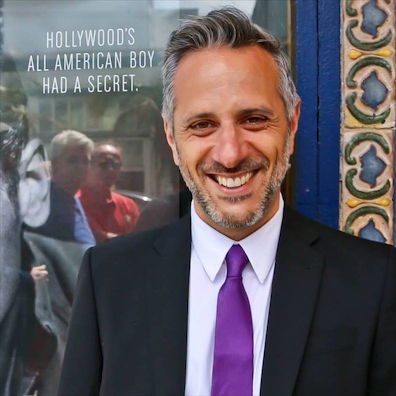|
presents THIS DAY IN GAY HISTORY based on: The White Crane Institute's 'Gay Wisdom', Gay Birthdays, Gay For Today, Famous GLBT, glbt-Gay Encylopedia, Today in Gay History, Wikipedia, and more …
Collected by Ted September 15 [{(o)}]|[{(o)}]|[{(o)}]|[{(o)}]| [{(o)}]|[{(o)}]
1189 – On this day, William Longchamp (d.1197), sometimes known as William de Longchamp or William de Longchamps, a medieval Lord Chancellor, and Chief Justiciary, was appointed Bishop of Ely in England by Richard I. Born to a humble family in Normandy, he owed his advancement to royal favour. Although contemporary writers accused Longchamp's father of being the son of a peasant, he held land as a knight. Longchamp first served an illegitimate son of King Henry II, but quickly transferred to the service of Richard I, Henry's eldest surviving son. When Richard became King in 1189, Longchamp paid £3,000 for the office of Chancellor, and was soon named to the see, or bishopric, of Ely and appointed legate by the pope. Longchamp governed England while Richard was on the Third Crusade, but his authority was challenged by Richard's brother, John, who eventually succeeded in driving Longchamp from power and from England. Longchamp's relations with the other leading English nobles were also strained, which contributed to the demands for his exile. Soon after Longchamp's departure from England, Richard was captured on his journey back to England from the crusade and held for ransom by Henry VI, Holy Roman Emperor. Longchamp travelled to Germany to help negotiate Richard's release. Although Longchamp regained the office of Chancellor after Richard's return to England, he lost much of his former power. He aroused a great deal of hostility among his contemporaries during his career, but he retained Richard's trust and was employed by the king until the bishop's death in 1197. Longchamp wrote a treatise on the law, which remained well known throughout the later Middle Ages. There were contempory claims that he was homosexual. Of Longchamp's homosexuality, Giraldus Cambrensis claims that "the more outrageous the sexual act, the more he liked it"; that he made homosexuality so common that heterosexuals were ridiculed at court - "If you don't do what courtiers do, what are you doing in court?"; that a woman brought her daughter to him dressed as and trained to imitate a young man, but when the bishop undressed her and found she was a girl he would not touch her ("although she was very beautiful and ripe for the pleasures of the marriage bed,"); and that his homosexuality was so great that even descendants of his family were suspected of homosexuality. John Boswell warns that Giraldus' claims are so exaggerated, they may be based on little more than the standard English animus against the French-born Norman overlords - but also notes that unlike other English diatribes against the invaders, his complaints against Longchamps are not about general sexual depravity, but concerned only with homosexuality. It is also important to note that male sexual relationships appear to have been commonplace at the court of the bisexual King Richard I. There was a well-known line about Longchamps that the barons would trust their daughters with him, but not their sons.
1786 – Pennsylvania reduces the penalty for sodomy to a maximum of ten years in prison and requires forfeiture of estate and prohibits bail.
1890 – Claude McKay (d.1948) was a Jamaican-American writer and poet. He was a central figure in the Harlem Renaissance. Born in Jamaica, McKay first traveled to the United States to attend college, and encountered W.E.B. Du Bois's The Souls of Black Folk which stimulated McKay's interest in political involvement. He moved to New York City in 1914 and in 1919 he wrote "If We Must Die", one of his best known works, a widely reprinted sonnet responding to the wave of white-on-black race riots and lynchings following the conclusion of the First World War. In the following years he made visits to and had prolonged stays in the U.K., Russia, and Morocco. A poet from the first, he also wrote five novels and a novella: Home to Harlem (1928), a best-seller that won the Harmon Gold Award for Literature; Banjo (1929); Banana Bottom (1933); Romance in Marseille (written in 1933, published in 2020), a novella, Harlem Glory (written in 1938-1940, published in 1990), and in 1941 a novel, Amiable With Big Teeth: A Novel of the Love Affair Between the Communists and the Poor Black Sheep of Harlem, which remained unpublished until 2017. McKay was bisexual; he pursued relationships with both men and women throughout his life. He never officially "came out" as it was considered a societal taboo or explicitly state his sexual preference, but over the years he appears to have frequented and enjoyed the "clandestine" homosexual communities of New York as well as relationships of intermediate duration with several women. According to his biographer, Wayne Cooper, Frank and Francine Budgen, whom he knew during his stay in London in 1920 remembered him as "open" about his sexuality and as "not at all effeminate." Several of his poems suggest homosexual sentiments. In others, the gender of the speaker is not identified, which leaves to interpretation the nature of the relationships presented. Some suggest that there was a sexual component to McKay's relationship with his mentor, Walter Jekyll, who was apparently homosexual but there is no evidence one way or the other. In the early 1920s McKay was intermittently involved with the English labor advocate and IWW organizer, poet, and translator Charles Ashleigh.
1895 – Walter Spies (d.1942) was a Russian-born German primitivist painter. In 1923 he came to Java and then Bali starting in 1927. He is often credited with attracting the attention of Western cultural figures to Balinese culture and art in the 1930s and he influenced the direction of Balinese art and drama. Walter Spies was born in Moscow, Russia, on September 15, 1895. His father was a German diplomat. When he was 15, Spies was sent to school in Dresden, Germany, but he returned to Russia on summer vacations, and he was there when World War I broke out in 1914. Spies's father was arrested immediately, and when Spies reached military age in 1915 he too was arrested by Russian soldiers and sent to an internment camp in the remote Ural Mountains. This experience was much less severe than might be assumed, however. Though unable to leave the remote village, Spies was not restricted to a prison; he worked for local farmers and lumbermen and learned their folktales and songs. As Russia became immersed in political change in 1917 and withdrew from the war, Spies was able to return to Moscow. Disguised as a peasant he rode trains as a hobo toward Germany and then sneaked across the battlefront, arriving once again in Dresden. There he worked for sculptor Hedwig Jaenischen Woermann in her studio.
In the 1920s, in Amsterdam, where he saw artworks imported from the Netherlands' Indonesian colonies and connected them in his own mind with the natural themes and slightly surrealist constructions he had been cultivating ever since his internment in the Ural Mountains. Obtaining passage to Indonesia by signing on with a freighter crew, Spies arrived in Bandung on the island of Java in October of 1923 and quickly got a job accompanying silent Chinese films on the piano. His enthusiasm for music attracted the attention of the Sultan himself, who hired Spies as conductor of a small European orchestra he maintained. Spies quickly mastered both the Javanese language and Malay, which served as a common language for Indonesia's thousands of islands and became the basis for the modern Indonesian language. 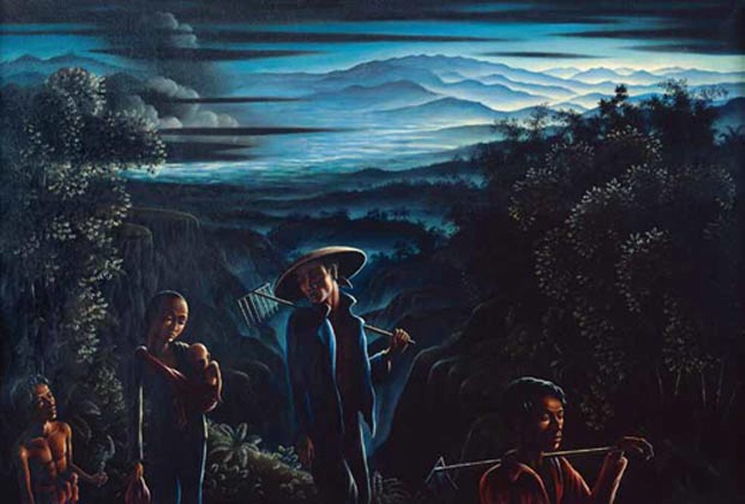 (Click for larger) Spies grew weary of his increasingly hectic social life, and retired to the tranquil mountain retreat that was to become the setting of some of his most beautiful and atmospheric paintings, including "Iseh im Morgenlicht 1938" Despite his desire to escape from a constant stream of visitors, Spies still used to receive guests at Iseh, including the musician Colin McPhee and his wife, anthropologist Jane Belo, the Swiss artist Theo Meier and the Austrian novelist Vicki Baum. Vicki Baum accredits Walter Spies with providing her the factual historical information and details on Balinese culture for her historical fiction novel "Love and Death in Bali" - dealing with the Dutch intervention in Bali (1906), and first published in German in 1937. In December 1938, Spies was arrested as part of a crackdown on homosexuals. Spies was gay, and that fact, combined with his German citizenship, helped to seal his doom as Germany menaced the rest of Europe in the late 1930s. The cultural atmosphere in Indonesia tightened, and Spies was arrested on charges of indecent behavior in December of 1938, serving a prison term that lasted into 1939. With the influence of people such as Margaret Mead, he was released in September 1939. When Germany invaded Holland soon after the outbreak of World War II, the few German citizens in the Dutch East Indies were arrested. Spies was held for 20 months in internment camps on Java and Sumatra. Even there he could occasionally paint and study musical scores sent to him by relatives. But early in 1942 he was put on a transport ship bound for Ceylon. A day after it left Sumatra, on January 19, 1942, the ship was hit off Nias Island by a Japanese bomb, and the Dutch crew abandoned ship without setting its German prisoners free. Spies drowned with the rest of the prisoners. Never prolific, he left a modest body of paintings that sometimes yielded prices of more than $1,000,000 in art auctions by the early 2000s.
1904 – Umberto II of Italy, born Umberto Nicola Tommaso Giovanni Maria di Savoia, occasionally anglicized as Humbert II (d.1983), was the last King of Italy for slightly over a month, from 9 May 1946 to 12 June 1946. He was nicknamed the King of May. Son of King Victor Emmanuel, as the Prince of Piedmont, he was educated to a military career and in time became the commander in chief of the Northern Armies, and then of the Southern ones. However, his role was merely formal, the de facto command belonging to Benito Mussolini. By mutual agreement, Umberto and Mussolini always kept a distance. After the end of WWII, King Victor Emmanuel abdicated formally in favor of his son Umberto in 9 May 1946 under the threat of an upcoming referendum to eliminate the monarchy. Umberto served as king for 34 days. He and his wife were both young and cultivated, and thus presented a stark contrast to Victor Emmanuel. It was to no avail, however—a decisive majority voted to make Italy a republic. Having promised to accept the election results, Umberto accepted the defeat, urging his now-former subjects to serve the new republic. The monarchy formally ended on 12 June 1946, and Umberto left the country. Umberto and his young wife separated in exile; it had been an arranged marriage, following a long tradition of royal families. Some academics have explored Umberto's possible homosexuality. As early as the 1920s, Mussolini had collected a dossier on his private life for purposes of blackmail. Certainly during the war, newspapers asserted that Umberto was homosexual, and information continued to be spread in the lead-up to the post-war referendum on the monarchy in the hope of influencing the outcome. It is, however, unclear to what extent such rumours could be substantiated. Umberto's custom of giving a fleur-de-lis made of precious stones to favoured young officials in his entourage was well known, and Umberto's lovers may have included Luchino Visconti and Jean Marais, and a former army lieutenant who published details of Umberto's advances to him. King Umberto lived for 37 years in exile, in Cascais in Portugal. He never set foot in his native land again.
1932 – Ann Weldy, who adopted the pseudonym Ann Bannon, wrote lesbian pulp novels—along with Valerie Taylor and Paula Christian—in the late 1950s and early 1960s. When first published, Bannon's five novels, which form an interlinked series, achieved considerable popularity; they were even translated into other languages. Their appeal lies in their plausible descriptions of lesbian life in New York City; as critic Diane Hamer comments, Bannon's novels "read like a travelogue or tourist guide of Greenwich Village and its homosexual bars." It was Weldy's own transitional position, existing between the heterosexual and homosexual communities, that made her such a perceptive commentator about the difficulties of pursuing a lesbian lifestyle in the 1950s. Thayer began to lead a double life at an early age. She was conventionally married yet slipped away on the weekends to experience the gay night life of Greenwich Village. Valuing her privacy and not wishing to be connected with lesbian pulps, she dropped from sight after her books were published. Only in 1980, when her books were republished by Naiad Press, did she acknowledge authorship. Although written last, Beebo Brinker (1962), is actually the first novel in Bannon's sequence, chronologically. The novel introduces young Beebo, fresh from the Midwest, who comes out as a lesbian in the Greenwich Village gay culture. Beebo, the stereotypical butch, is a central figure in Bannon's other novels, as well. Bannon's novels, as well as other lesbian pulps, provide an important record of lesbian life in a period when few women dared speak about homosexuality.
He was born in Alabama and was of Louisiana Creole ancestry. Joining the Air Force in 1960, serving for four years as an instructor (at Keesler Air Force Base in Mississippi) and signals intelligence operator in Karamursel, Turkey, and being discharged, he moved to California and came out. Laurent's sexual orientation was an issue during and after his service. He was investigated by Air Force officials during his service in Turkey and questioned by federal agents after his discharge, he recounted. Despite threats, he refused to inform on other gay service members and remained proud of his military service. He held at sign at the 1993 gay march on Washington that featured a copy of his honorable discharge under the words, "I Served My Country! Did Rush Limbaugh?" Between 1964 and 1967, he worked for KABC in Los Angeles. He participated in the 1966 Compton's Cafeteria riot in San Francisco, and participated in the riots following the police raid on Black Cat Tavern in Los Angeles. In the wake of the two incidents, he joined Steve Ginsberg's PRIDE organization and co-founded The Los Angeles Advocate as a way of letting the gay community know about gay protests, LAPD raids and other news you could use in that era. While helping to publish the early editions of the paper, he wrote a nightlife column ("Mariposas de la Noche") under the pseudonym "P. Nutz." He wrote:
"Everyone on the paper used pseudonyms. It was dangerous to be a 'pervert' prior to the liberation movement. You didn't use your real name for fear of reprisals, not only harassment by the LAPD, but the ever-present possibility of losing your day job, family and friends," In 1975, Laurent was one of 40 arrested after a police raid on the Mark IV Gay Bathhouse following a mistaken tip that the charity "slave auction" being held at the locale to benefit was an actual, illegal slave auction. That same year, when The Advocate was sold and relocated to the Bay Area, he relocated to the Bay Area for a short time before returning to Los Angeles to establish NewsWest (1975-1977) to fill the void left by The Advocate. In the 1980s, Laurent bought a printing company and participated in ACT UP demonstrations to advocate for AIDS/HIV patients. He also participated in the 1993 March on Washington. In 1996, he was diagnosed with prostate cancer and was given two years to live, but managed to outlive the expectation. In his latter years, he spent more time as an amateur genealogist who focused on Louisiana Creole ancestry. He died on October 26, 2011, in Los Angeles after a long struggle with prostate cancer.
1947 – Poet, novelist, playwright, entrepreneur and activist, Perry Brass was born in Savannah, GA. At last count, Brass has published 15 books, winning numerous awards for his poetry, plays, and fiction. He has been involved in the gay rights movement since November of 1969, when he co-edited Come Out!, possibly the world's first gay liberation newspaper. In 1972, with two friends he started the Gay Men's Health Project Clinic, the first clinic for gay men on the East Coast, still operating as New York's Callen-Lourde Clinic. The Health Project Clinic, operating from a basement in New York's West Village, strongly advocated for the use of condoms by gay men a decade before the first advent of HIV, even though most gay men still considered them to be a birth control device. In 1984, his play Night Chills, one of the first to deal with the AIDS crisis, won a Jane Chambers International Gay Play-writing Award. As a poet, his collaborations with composers include the much-performed "All the Way Through Evening," a cycle of 5 "nocturnes" in reaction to the AIDS epidemic, set by the late Chris DeBlasio; "The Angel Voices of Men" set by Ricky Ian Gordon; "Three Brass Songs," with composer-pianist Fred Hersch; and "The Restless Yearning Towards My Self," with Paula Kimper. Brass's work often deals with that intense intersection of sexuality, spirituality and personal politics that came directly, openly, out of his involvement with the radical queer politics of the late 1960s and early 1970s. This intersection was deemed "impossible" by many academics and even some gay activists of the early years of the movement, who could accept one but none of the other elements that now make up the lgbt movement. A LGBT pioneer since college, Brass has participated in many gay rights movements and witnessed changes during the decades. Brass married his husband, Hugh Young, after New York State legalized gay marriage in 2011; and they have been together for 34 years. Brass said he never thought his right to marry would come during his lifetime and “it is like a dream” to enjoy their lives together with more benefits, securities, as well as responsibilities as a legal couple. 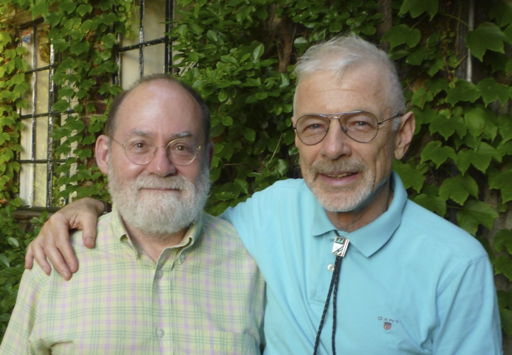 Perry Brass (R) and Husband Hugh Young
1954 – John Hervey, 7th Marquess of Bristol (d.1999), also known as John Jermyn, was a British aristocrat and businessman, notable for his wealth, drug addiction, imprisonment on drugs charges, homosexuality and flamboyant lifestyle. John's father, Victor Hervey, 6th Marquess of Bristol, who had been jailed for jewel theft in his youth, was harsh to his oldest son, according to friends of the latter. "He treated his son and heir with indifference and contempt," said Anthony Haden-Guest. The Marquess of Blandford summed up the relationship: "Victor created the monster that John became." John was a ward of court for some part of his childhood.In spite of a lifetime of homosexual relations, John married Francesca Fisher, then 20, just shy of his 30th birthday; it is not known whether they consummated their relationship. The marriage lasted for four years; they had no children. Lord Bristol was educated at Harrow School, where he began to be known for drug and alcohol use; the Oxford Dictionary of National Biography designates him a "wastrel". The 7th Marquess was described by his friend Jamie Spencer-Churchill, Marquess of Blandford, as a "complicated, reserved character, hiding behind a flamboyant personality". He was frequently depicted in the British tabloids for his drug use, wild parties and homosexuality. He served two prison terms for drug offences. Bristol even piloted his helicopter — without radar — while snorting cocaine off the map he was using for navigation. The Marquess blamed some of his difficulties on what he called bad blood, that is, a "family disposition to depression." Lord Bristol sold the remaining lease on the ancestral home of Ickworth House back to the National Trust in 1998 in lieu of their evicting him for bad behaviour. He died of AIDS the following year at the age of 44. He inherited a million pounds when he was 16 years old, and another four million five years later. He amassed a personal fortune worth up to £35 million, but by the time of his death at 44, it had "all slipped through his fingers — every last penny", according to The Times. His estate was probated for £5000. The Spectator describes the 7th Marquess as follows:
Born with an inheritance which included millions of money, thousands of acres, and oodles of style at Ickworth, the family seat, this flamboyant homosexual, charming but empty of soul, allowed himself to sink into a brain-mincing addiction to heroin and cocaine. Before the end he could not pass two hours without a snort, was frequently in prison, and was reduced to penury.
1965 – The Wisconsin Supreme Court rules that a sodomy defendant recommended for "specialized treatment" can not be sentenced to prison.
1967 – The Minnesota Supreme Court upholds the sodomy conviction and five-year prison sentence of a man who pleaded guilty only because police had promised him that he would receive "treatment" instead of being sent to prison. The Court ignores the fact that police lied to him in order to get him to plead guilty.
1969 - Jeffrey Schwarz is an American Emmy Award-winning producer and director known for an extensive body of documentary film work. His feature documentaries include The Fabulous Allan Carr, Tab Hunter Confidential, I Am Divine, Vito, Wrangler: Anatomy of an Icon and Spine Tingler! The William Castle Story. A New York native, Schwarz is a graduate of the SUNY Purchase Film Department. His senior thesis documentary was Al Lewis in the Flesh, a short film profiling Al Lewis, famous for playing Grandpa on the television series The Munsters. His first job in the film industry was as an apprentice editor on The Celluloid Closet, Rob Epstein and Jeffrey Friedman's film adaptation of Vito Russo's seminal book. Schwarz's work on this project would later bridge into the development of his own documentary about Russo, titled simply Vito. Schwarz spent the late 1990s working in the low budget feature world, editing movies and trailers.In 1998, Schwarz was hired to edit a documentary about the making of Gus Van Sant's controversial remake of Alfred Hitchcock's Psycho. Psycho Path was included on the Universal Pictures Home Entertainment DVD release of Psycho, and was Schwarz's first foray into the burgeoning world of DVD bonus features. As the DVD format was introduced to the public, all the major studios began offering making-of featurettes and audio commentaries on their discs as an incentive to consumers to replace movies they already owned on VHS or laserdisc. Schwarz capitalized on this moment to segue into producing original bonus content, and soon became one of the leading producers in this field. Currently in development are feature documentaries about the making of Paul Verhoeven's "misunderstood masterpiece" Showgirls; the recently premiered documentary about Gloria Swanson's attempts to mount a musical version of Sunset Boulevard starring herself; and the true-life murder that inspired William Friedkin's 1980 thriller Cruising. Schwarz is a member of the LGBT community. He appeared in The Advocate's "Out 100" in 2013, and in 2015 was presented with the Frameline Award, by San Francisco’s Frameline Film Festival. The award is designed to honor those who have made a major contribution to LGBT representation in film, television, or the media arts.
1969 – Gay Power, New York’s first gay newspaper and the first publication to emerge from the post-Stonewall movement, publishes its premiere issue. Gay Power was a biweekly newspaper edited by John Heys. It covered the culture and politics of the New York gay scene through a very personal vision. Each issue featured psychedelic covers and centerfolds and one of its covers was created by Robert Mapplethorpe. The newspaper also contained illustrations by Touko Laaksonen, better known as Tom of Finland, as well as other regular contributors and regular columns from all of the active gay activists groups, from the most conservative Mattachine Society to the most radical The Gay Liberation Front, and all the other groups in between.
1978 – A Louisiana appellate court upholds the right of the legislature to set a more severe penalty for solicitation for sodomy than for solicitation for prostitution because sodomy is "unnatural" and prostitution is "natural."
1996 – The European Parliament calls for an end to "all discrimination against homosexuals."
2011 – Australia: "X" becomes the gender option for intersex people on their passports, while transgender people continue to choose between "male" and "female."
[{(o)}]|[{(o)}]|[{(o)}]|[{(o)}]| [{(o)}]|[{(o)}] |
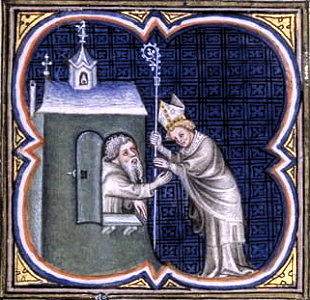
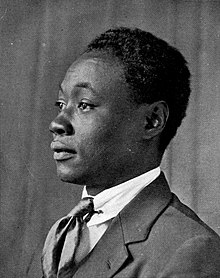
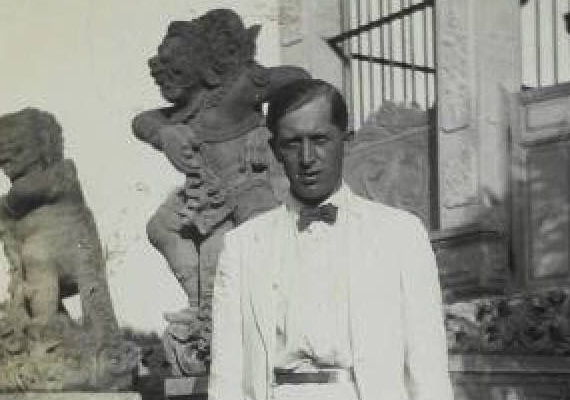
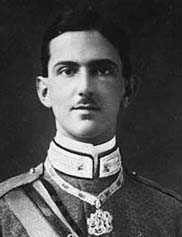
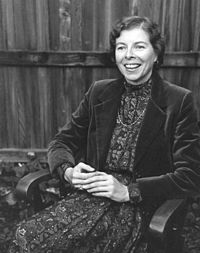
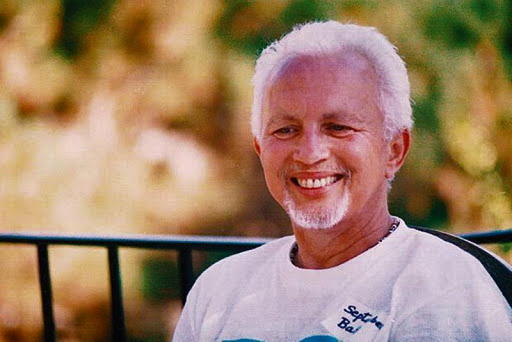
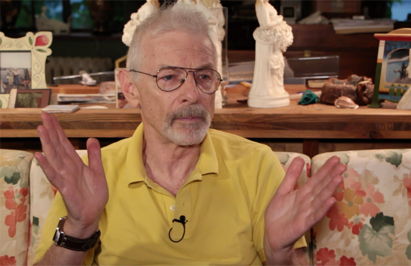

 Added 2023
Added 2023